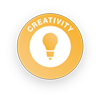
Writers’ Club Winner: Finding Your Life Purpose At 16
Include this article in your Skills Builder Journal. It could help you develop... 
A little while ago we held a competition for new people to join our Writers’ Club. The winners have been picked and we’re really excited to see them produce new content on Connect, on subjects that matter to them. Over the next few weeks we’ll be sharing their winning pitch ideas so you can get to know them a little better.
This blog is by Mia, who chose to write about deciding on your future as a young person and the tools to help you figure it all out!
The sixth form experience can be both exciting and daunting. The two years act as a holding station for students, bridging the gap between main school life and the wider world. It is unsurprising that the ages of 16-18 are commonly portrayed by the media as the time to “find yourself”, as questions surrounding careers, dreams, further education, and the future infiltrate most conversations. Yet, with such important decisions needing to be made it raises the question – how can you find your life purpose at 16?

Everyone wants to end up happy. With jobs occupying an average of 40 hours (about one and a half days total) a week, finding the right career is assumed crucial for a fulfilling life. The quest starts as soon as we enter education, yet it becomes heightened with the looming prospect of what awaits us after we leave school. Self-help books offer suggestions to help conquer the fear of not knowing where our life is heading. They advocate for methods which help us become grounded in the present and ask ourselves what we want now. However, despite promoting mindfulness, these solutions can’t be fully applied when considering the future of our education. The questions we must consider innately ask us to project ourselves into the future and ask ourselves what we will want then.
So, what tools can we use to discover our life purpose at 16?
There is no correct way of uncovering what path we wish to take to achieve a fulfilling life, as it is subjective to every individual. However, there are a few specific questions we can ask ourselves to gain a deeper understanding of what we want from life. Whilst our dreams and ambitions change as we get older, hopefully the following approaches can kickstart us on the right path to a happy future.
A common approach a person can take to uncover their life purpose is “Ikigai”, a Japanese concept translating to “A reason for being”. The approach involves answering the following four questions:
- What do you love doing?
- What are you good at?
- What does the world need?
- What can you get paid to do?

A person’s Ikigai is a role which answers all four of these questions. Whilst it may not be possible to uncover your Ikigai at 16, answering these questions can still give a good indication as to which path to begin on after leaving school. Any career a person ends up in will be an answer to questions two and four. But, when a person combines their skills with a role which the world needs and they love, a job can become truly fulfilling and enriching.
A useful tool for analysing what the world needs is the 17 Global Goals agreed by World Leaders in 2015. Each of the 17 goals relates to a challenge the world is facing, including poverty, climate change and gender equality. For improvement to be made in each global goal action needs to be taken. Under each goal on the Global Goals website there are suggestions of proactive steps which can be taken to work towards change. By finding an aspirational career under the umbrella of a global goal, not only will a person be using their skill set to make money, but also to make change in an area they are passionate about.
If the “Ikigai” approach feels too complicated to be completed during sixth form, an alternative three steps can be taken which may be less overwhelming.
- Determine the worst emotional pain you have been through
- Make a list of the steps you took to make it through that pain
- Figure out how you can help others get through that type of pain

The steps can be taken to point a person in the direction of an emotionally fulfilling career. Throughout life, the method can be repeated to check if a person’s career or plan for the future still aligns with their emotional purpose.
I found taking these three steps much simpler than the “Ikigai” approach, as it helped me understand my drive to work in the field of psychology. At present the worst emotional pain I have experienced has been processing my parental relationships, due to my dad’s depression. I reached out to the school, as I was struggling, and received counselling. Talking to someone external in a safe environment helped me greatly in processing my emotions and understanding myself better. This experience sparked my interest in the psychology behind relationships and how the attachments we form impact on our future and behaviour. I found great comfort in being able to understand my behaviour on a scientific level and it is an experience I wish to share with others. By taking these three steps I have consolidated my aspiration to work in the field of psychology to help others better understand their own behaviour.
Although there is no single way to uncover your life purpose at 16, the mentioned methods can act as a starting point for you to better understand yourself and what you want out of life. It is important to stress that it is perfectly fine to have no idea what you want the future to hold either or for dreams to change! A person constantly changes and develops throughout life and so can your life purpose, but self-reflection will always be a valuable tool in navigating the future.




